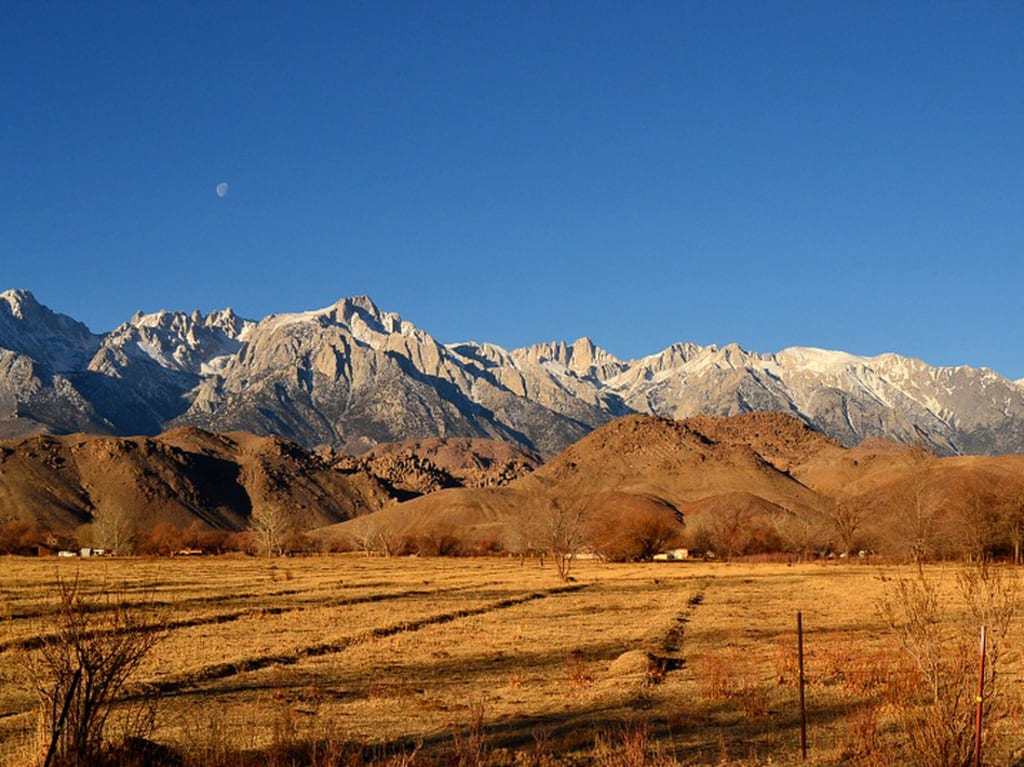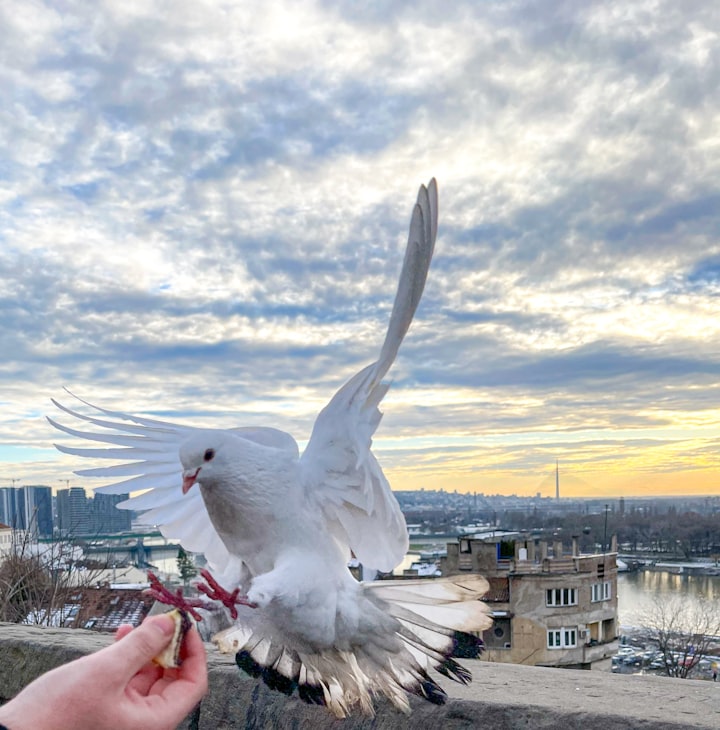
by Lennox Ó'Súilleabháin
“There weren't always dragons in the Valley . . .
But there never would be again.”
- Marta Edween, Deserts of Our Making
The final dragon perished alone without much fan-fare or note. One day they were there and the next extinct. It had made little difference to the denizens of the farmland down valley. Once the hunts had successfully culled the population the few who still stalked in caves and mountaintops lining the valley kept their distance or just left. By machine guns and dynamite and human creativity the great beasts were slain. As they were slain the survivors learned. Learned that their shrinking fringe of the frontier could shrink no more.
Gargantuan beasts composed mostly of scales as hard as steel. With beady black eyes recessed along a beak hooked snout, intimidating and able to crush machinery as though it were paper. Their stiff, curved wings that when outstretched bent space and time to traverse the stars. Their flights marked by miasmic trails of color that thrust their impossibly proportioned hulks to speeds no human craft had yet achieved. Dragons to some were miracles of magic and nature, older than the oldest human records.
Thus, there weren’t anymore dragons in the valley. There weren’t anymore dragons on the continent. Perhaps, there weren’t anymore dragons on the whole planet. They’d returned to the void between worlds, safe, for now.
“Good riddance.”
“About time.”
“My land, my right.”
Were common to hear when any local was asked. Hayseeds and populists, were used by handfuls of urban critics who paid close enough attention to care. They claimed the dragons were intelligent, ancient creatures natural to the valley. The locals cited long traditions of dragon hunting from their ancestors on the First World, the need for safe farming to provide for themselves and nearby communities. Dragons were a menace that breathed pure Aether and brought destruction whenever they and humans met. However, the point was moot and the hunts were done, the dragons were gone.
For a decade the valley flourished. The flowers bloomed in the spring. The soil rich, its forests verdant. The steep mountains around it keeping the water contained in river and lake, only to evaporate and return in the seasonal rains. The people made their livelihoods, and though no one in the valley made it big they prospered none the less. Without dragons it was ideal.
In it’s idyllic setting it drew the attention of beasts more terrifying than dragons. Hundreds of miles to the south sprawled the city of Madé, dry and arid, fed only by a trickle of a river. The city fathers; robber barons, bankers, ranchers, and ministers saw the potential for the temperate valley. They hatched plans- take its unused water and feed the arid valleys near the city of Madé. These arid valleys owned and parceled out by these same city fathers. “Make the desert bloom.” as their papers wrote.
These city fathers saw fit to use the water. Convoys of autos and lorries descended on the peaceful, dragon-less valley. Surveyors marked the best routes for aqueducts and prime locations for damns, and along those paths of future flow work camps emerged to begin the long process of carving rivets in the earth. Tools of magic and mechanics were unleashed on the valley and its pristine environs.
The first incident between the locals and the workers did not take long to manifest. Initially, the complaints were merely verbal, shouted at a volume and with pragmatic profanity only an enraged farmer could muster, but the conflicts quickly descended into physical violence. None are sure who threw the first punch, both sides adamant it was the other, but the first bullets were fired by a farmer of the valley. The gunfire was sporadic and initially shot to frighten, but unlike the dragons of old the laborers could shoot back. The armed guards were hired to protect the investments. Thus, the locals turned to asymmetrical means, dynamite and fertilizer turned to weapons of sabotage. The locals had repelled dragons, they could repel the greedy machinations of other men.
Fighting and sabotage put the project on a crawl. The city fathers would not let their investment sink, and unlike the dragons of the past they would not just give up and leave. They pressed their claims, and involved the agents of the state. Arrests, internment, and assassinations wore the resistance down. The project’s completion was inevitable. Water flowed from the valley, hundreds of miles by the millions of gallons into fresh new fields.
The old valley did not die immediately. An exodus began for hundreds of families. Forced to search for opportunities elsewhere, they sold what they had for pennies. A few stubborn types held on for some hope and remained in the valley. Most would inevitably sell, receiving better payments for their patience, but in the end the results were the same.
The last farmer perished alone without much fan-fare or note. One day they were there and the next extinct. It had made little difference to the denizens of Madé hundreds of miles away. Once the water dried up it successfully culled the population, the few who still staked on their lands in the valley kept their distance and accepted their fate. By power diggers and dynamite and human creativity the valley was made arid and dead. As they were driven out the survivors learned. Learned that their shrinking fringe of the frontier could shrink no more.
There weren't always farmers in the Valley . . .
But there never would be again.
About the Creator
Lennox O'Suilleabhain
he/they
A new writer seeking an audience for the strange fantasy set in the worlds of Elias.
A former ghost writer wanting to find their own voice.
Inquiries to [email protected]
https://linktr.ee/lennoxosully





Comments
There are no comments for this story
Be the first to respond and start the conversation.